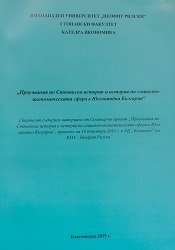
We kindly inform you that, as long as the subject affiliation of our 300.000+ articles is in progress, you might get unsufficient or no results on your third level or second level search. In this case, please broaden your search criteria.

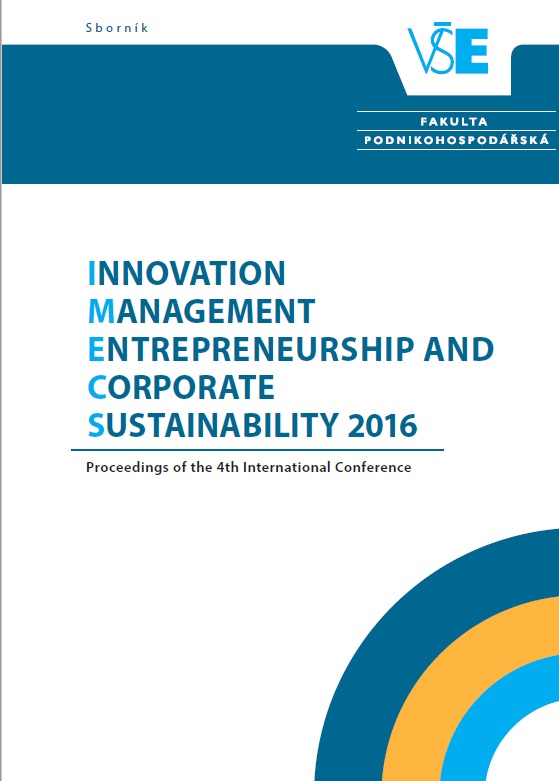
This e-book contains contributions of authors who attended the fourth year of the international scientific conference on Innovation Management, Entrepreneurship and Corporate Sustainability (IMECS 2016) which took a place at the University of Economics, Prague (Czech Republic) on May 26-27, 2016.This e-book contains contributions of authors who attended the fourth year of the international scientific conference on Innovation Management, Entrepreneurship and Corporate Sustainability (IMECS 2016) which took a place at the University of Economics, Prague (Czech Republic) on May 26-27, 2016. The conference aimed to achieve academic excellence in a regional context and to establish a platform for mutual collaboration, exchange and dissemination of ideas among researchers, professionals and public authorities.
More...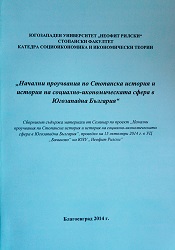
The collection contains materials from the Seminar on the "Initial Researches in Economic History and History of the Socio-Economic Sphere in Southwestern Bulgaria", held on October 15, 2014 in University center "Bachinovo" of South-West University.
More...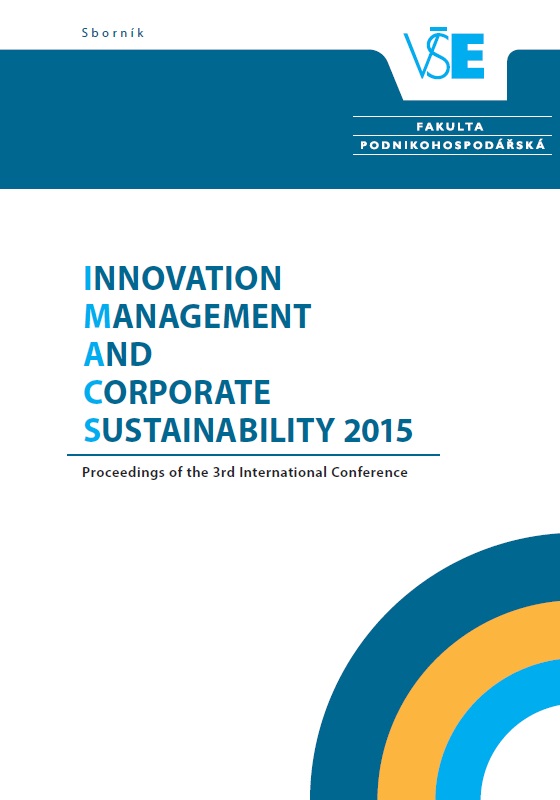
This e-book contains contributions of authors who attended the third year of the international scientific conference on on Innovation Management and Corporate Sustainability (IMACS 2015) which took a place at the University of Economics, Prague (Czech Republic) on May 21-22, 2015. The conference aimed to achieve academic excellence in a regional context and to establish a platform for mutual collaboration, exchange and dissemination of ideas among researchers, professionals and public authorities
More...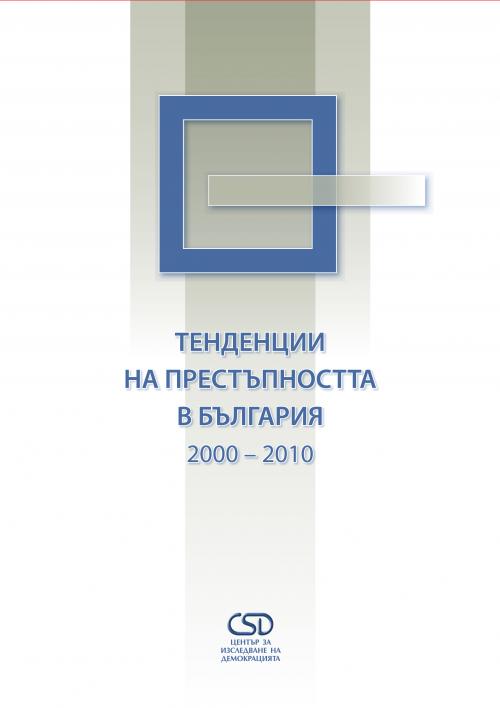
The present study examines cime trends in Bulgaria between 2000 and 2010 based on a comparison between surveys of crime victims (National Crime Survey) and police statistics. In addition to overall crime trends data, the report presents data on ten different categories of crime, as well as regional specifics of crime in Bulgaria. Criminal justice and socio-economic data is also analysed in an attempt to explain the observed trends in crime.
More...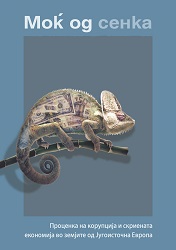
The current report, prepared by the Southeast European Leadership for Development and Integrity (SELDI) — the largest indigenous good governance initiative in SEE — makes an important contribution to the regional approach to anticorruption. It provides a civil society view of the state of corruption and comes in the wake of the 2014 SELDI comprehensive assessment of the various aspects of the legal and institutional anticorruption environments of nine SEE countries. In 2016, SELDI followed up on these assessments with an update of corruption monitoring and a special focus on state capture in the energy sector and the corruption–hidden economy nexus. The report underscores the need for broader political action for reform, which seems blocked or narrowing across the region. Inside pressure for such action has been suffocated by economic necessity and/or ethnic divisions, and the ossification of political and economic establishments. Outside pressure, delivered mostly by the European Union has been seen as wanting in relation to the size of the problems in the past couple of years due to a succession of internal and external crises. The authors underline that in none of the countries in the region has there been a clear sustained policy breakthrough in anticorruption though efforts to deliver technical solutions and to improve the functioning of the law enforcement institutions, mostly with support from the EU, have continued and even intensified in some cases. This has led to further slow decline in administrative corruption levels but at the expense of waning public support for reforms and of declining trust in national and European institutions.
More...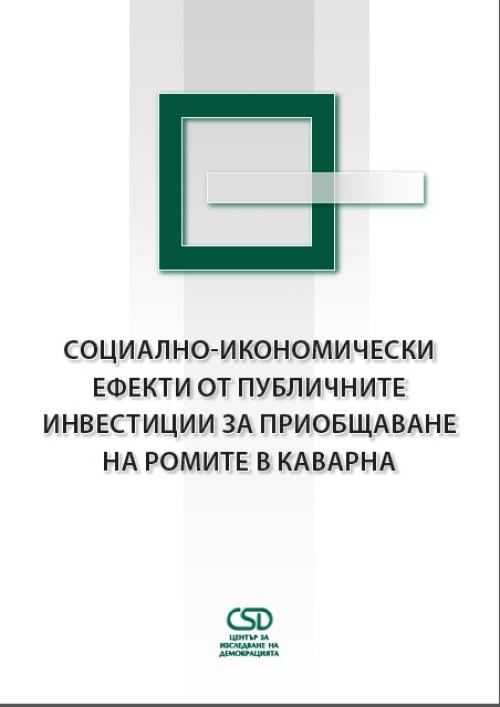
The aim of the current report is to provide new data and insight on the social and economic effects of public investments in Roma communities from a human development perspective. Its objective is to establish the effects of a wide range of public investments made by Kavarna municipality in the mostly-Roma neighbourhood of Hadji Dimitar, between 2004 and 2014. The investment covered areas such as housing and infrastructure, healthcare, employment, income, poverty and social exclusion, justice and crime, and political participation. It reviews a range of indicators with the aim of establishing the effects of these investments on the social and economic development of the neighbourhood and its residents, both Roma and non-Roma. It also looks beyond the neighbourhood to provide a comparative perspective on a national level. The data presented here is derived from a variety of sources and covers a range of indicators. Every effort has been made to ensure the use of similar indicators and definitions as previous household surveys, notably the UNDP/FRA study, and the NSI, however, the results are not directly comparable due to the difference in survey methodologies, samples and scope. The data presented should be taken as an indication of trends and tendencies. The lack of concrete data on the initial investments, the inputs and relevant baseline indicators has also challenged the quantifying of the contribution of individual public investments. Different investments have had different impact on the development of the neighbourhood and reducing the distances with the Bulgarian residents. This impact has been established by looking at the results obtained from a specialised household survey conducted among 300 Roma and non-Roma households in the Hadji Dimitar quarter of Kavarna in 2015. The relevance and impact of these changes is analysed through comparison with the national averages for the whole population and the averages for Roma nationally. It is also measured against the investments to establish a positive correlation between the effect and the investment where such data exists.
More...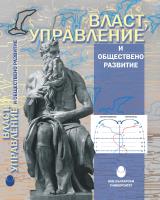
The conference is addressing the following problematic issues: - Supply of conceptual schemes, parameters and theoretical-applied models of different global risks – inequality and social cohesion, demographic crises, migration waves, employment; - Discuss effective political, economic and governance approaches (models) for implementation into society -integration, human capital, business environment, sustainable development and corporate social responsibility (CSR); - Draw global, regional, national priorities and trends with economic, political, social, cultural and environmental dimensions.
More...
Tehnologija je oduvek zaokupljala ljude, bilo iz praktičnih razloga (kako da sebi život učine lakšim), bilo iz radoznalosti (u smislu proširivanja granica ljudskog znanja). Kako tvrde umetnici/kritičari iz kolektiva Critical Art Ensemble, razmišljanja o svrsi i budućnosti tehnologije su se povezivala sa promišljanjima budućnosti ljudskog roda uopšte, i ona se najčešće odvijaju u dva smera: s jedne strane, tehno-utopisti koji smatraju da razvoj nauke i tehnike čovečanstvu može doneti neslućena dobra, blagostanje i lek protiv svih zala, a sa druge, tehno-distopisti, koji smatraju da je tehnologija izvor svih zala, i da se od nje ne može očekivati ništa dobro. Tehno-utopisti pravi procvat doživljavaju sa industrijskom revolucijom, kada vera u provi đenje ustupa mesto veri u kapitalizam. (Božja ruka provi đenja je nešto kasnije amputirana i prišivena kiborgu kapitalizma Adama Smita.) Naravno, sa dolaskom industrijske revolucije, težište se definitivno pomera u korist nauke i tehnologije: mislioci sa levice (Kondorse, Sen-Simon, Marks), kao i sa desnice (Kont, Spenser) su delili optimizam u vezi svetle budućnosti, uprkos različitim pristupima – tako je Sen-Simon predvi đao socijalizam saveta, dok je Spenser očekivao pojavu buržoaskog Natčoveka.
More...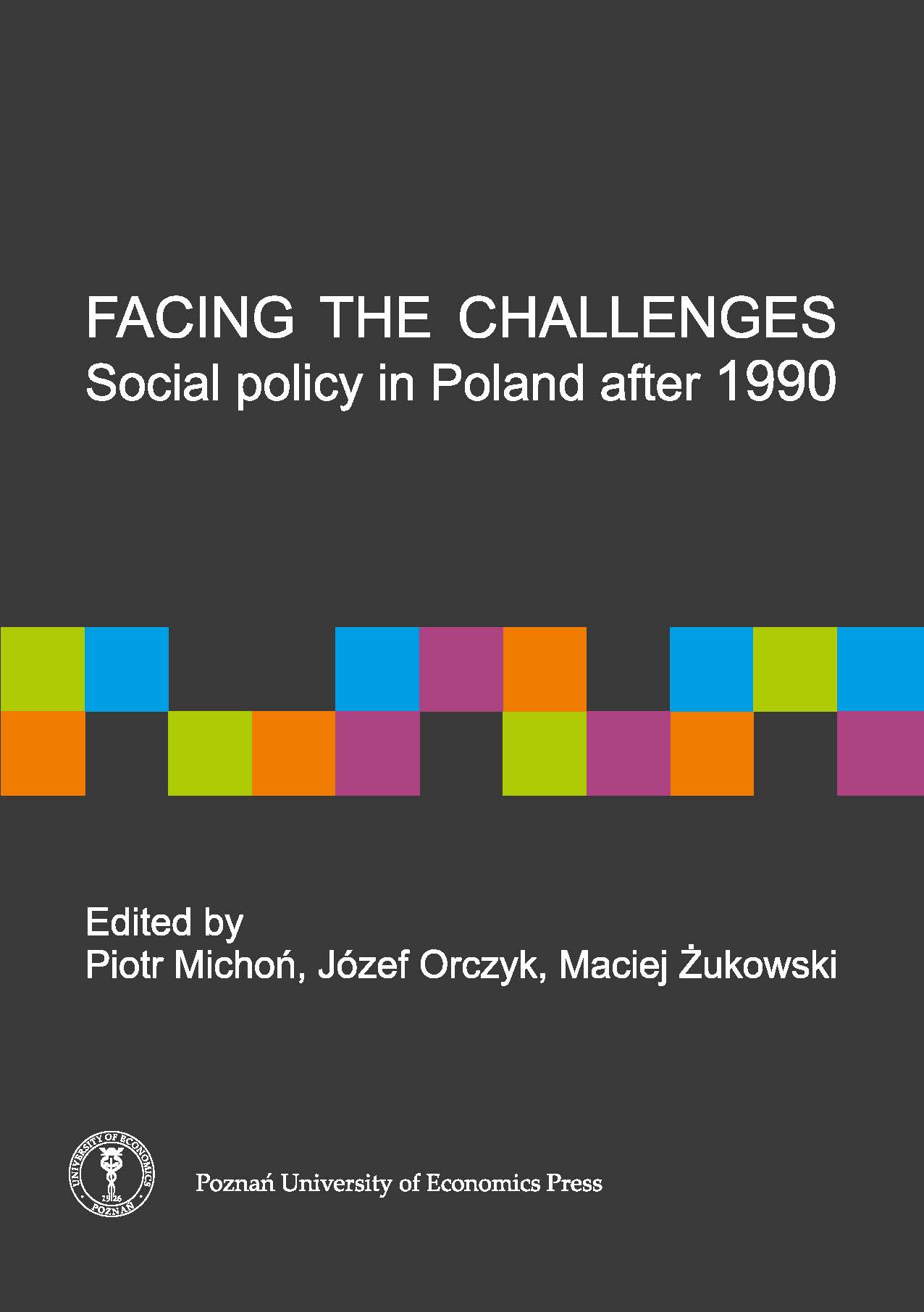
Polish social policy is changing not only in the material sense but also on the level of public consciousness. This concerns not only citizens, but also researchers and policy makers. Social policy in Poland after 1990 has its own specificity. One of its features are the lack of clear direction of development and the constant need for amendments. Unsurprisingly, diversity of approaches can be also found on the cognitive level, although it is not reflected in all sets of studies. This regards not only ideological differences and various appraisals of the same facts, but also the often underestimated domination of particular paradigms. The latter can be discerned in this monograph as well, as the effect of the authors’ provenance and the widespread approval of certain ways of thinking about and analyzing particular fields of social policy. The monograph has been divided into two parts. The first consists of the general studies of changes that took place on the institutional level and in public consciousness. The second part focuses on evaluating changes that occurred in particular fields of social activity which are strictly connected with the state’s social policy. The selection of those fields and the dissimilarity of approaches should encourage the reader to reflect upon thevariability of importance of material and consciousness factors in evaluating social policy (Józef Orczyk, Foreword).
More...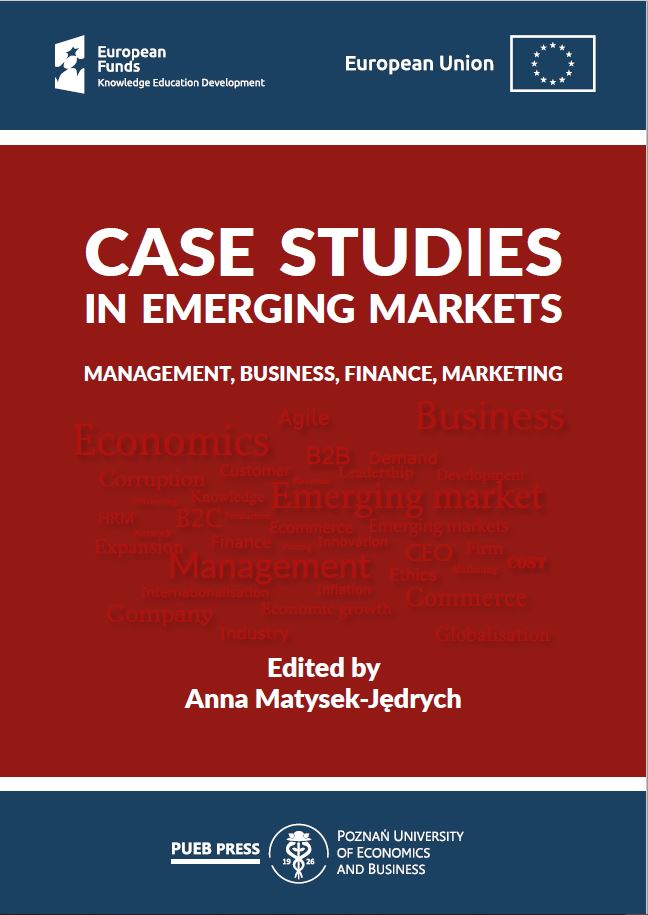
The book contains a series of eight long case studies on various business issues in emerging markets (for instance Polish, Chinese, Nigerian). The authors focus on a variety of topics from marketing, through business operations, finance, leadership, innovation, business development, internationalization and decisions to human resources management. Also, the perspective of the analyzed issues is varied, in the initial case studies, the microeconomic approach dominates, then the mezoeconomic and macroeconomic approach. The team of authors included both academics, with extensive teaching experience in English-speaking studies, and business practitioners whose practical knowledge allows them to explore contemporary business challenges in emerging markets. We are putting this book in the hands of lecturers and students of economics, finance, and management, believing that it will be a source of inspiration, discussion and will allow to better explore contemporary business. At the same time, we hope that by offering this book, we are filling a gap in the publication market, which has been dominated by case studies dedicated to well-known companies, well-known brands, and mature markets.
More...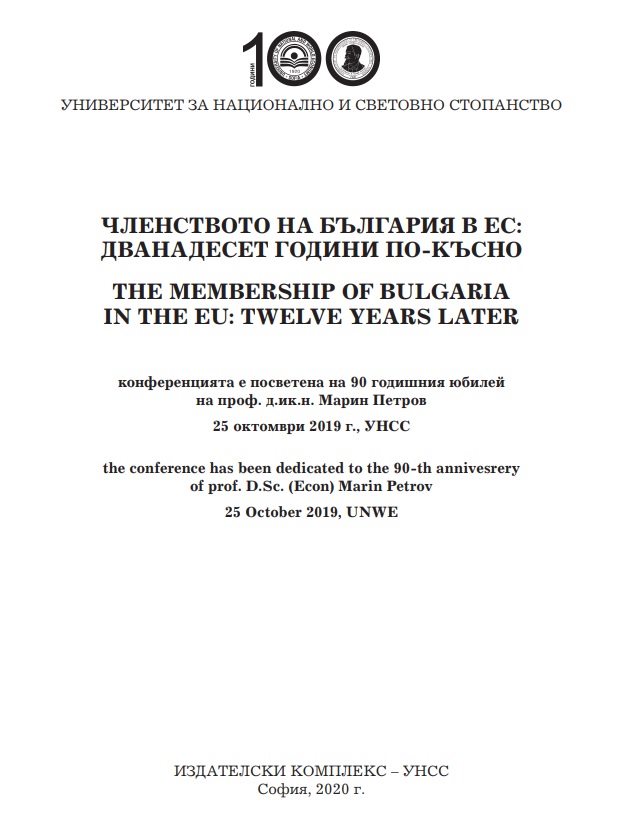
This book collects scientific papers and reports presented on the conference ‘The Membership of Bulgaria in the EU: Twelve Years Later’ organized by the International Economic Relations and Business department at University of National and World Economy, Sofia, Bulgaria. The conference, held on 25 October 2019, was dedicated to the 90th anniversary of prof. D.Sc. (Econ) Marin Petrov. The book contains select papers by leading economists from the university, dedicated researchers and Ph.D. students as well as external experts who provide valuable practical insights and contribute to the contemporary topics reviewed during the conference: EU Cohesion policy and its effects on SMEs; European Green Deal and its economic/geo strategic implications; The contribution of the existing gas infrastructure for EU’s and Balkans’ energy security; Expenditure factors for Eurozone growth; Income inequality in the EU; Fiscal stability of the EU; safe heaven assets; Digital single market; Environmental sustainability; renewables; comparative research for perceptions towards electro mobiles; Knowledge management system evolution. ‘The Membership of Bulgaria in the EU: Twelve Years Later’ is an annually organized academic event with the vision to foster open dialogue, offer contemporary research and exchange of ideas between fellow academics, policy makers, businesses, stakeholders, and the public.
More...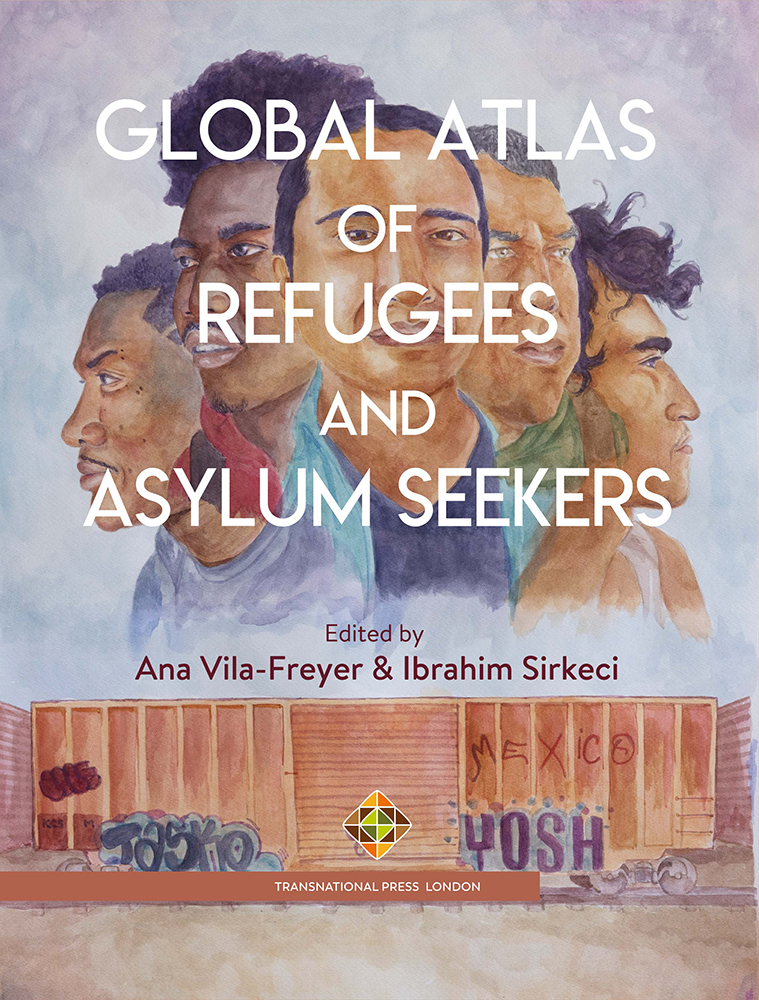
Dive into the intricate and globally significant topic of asylum and refugees with the “Global Atlas of Refugees and Asylum Seekers.” This compelling collection of essays, curated by a diverse group of renowned scholars, offers an extensive exploration of migration patterns, paradigms, and lessons from around the world. As you journey through the chapters, you’ll gain unique insights into how countries have responded to the unprecedented refugee crisis, examining notable cases such as Costa Rica, the United States, Canada, Chile, Mexico, and many more. Discover the complexities of asylum systems and the changing landscapes of migration policies in nations as diverse as Bulgaria, Italy, Germany, Greece, Sweden, Spain, and North Macedonia. Delve into the geopolitical implications of seeking refuge and asylum, with a comprehensive analysis of the Palestinian diaspora and an exploration of Pakistan, India, Turkey, and the communitarian-based strategy in refugee laws.This essential compendium provides a comprehensive understanding of the intricate dynamics and global challenges surrounding asylum and refugees. With its diverse range of topics and expert contributors, the “Global Atlas of Refugees and Asylum Seekers” is a valuable resource for anyone interested in the complexities of global migration and the policies that shape the lives of those seeking refuge.“The authors of this book identify two main paradigms shaping states’ narratives regarding asylum seekers and refugees. Along the horizontal axis, discourses range from national security to humanitarian aid. On the vertical axis, they extend from the pursuit of ideals, as traditionally defined for refugees and asylum seekers, to personal survival due to economic, climate-related crises, family violence, gender violence, or organized crime. This shift, as highlighted in the chapter on Germany by Professor Knerr, is altering the original vision of agreements that stemmed from post-World War II Europe.Finally, the rise of populist and authoritarian states in Latin America, which cannot be solely explained by repressive authoritarianism but rather create conditions of difficult survival for their nationals, is exerting additional pressures. Additionally, religiously motivated civil wars, such as those in Afghanistan, Iran, and Syria, pose complex challenges. Should countries reconsider the principles on which they are acting?Less obvious is the role of migration and refugee policies in influencing asylum seekers’ choice of their future destination. Many authors mention support networks and family ties as factors influencing refugees and asylum seekers’ decisions to leave their countries and select their destination. However, it remains unclear whether these networks operate in the same capacity as support networks for irregular migrants. Many chapters raise issues that have received little attention, primarily because of the focus on refugees and asylum seekers as agents. These issues include the reasons prompting the decision to leave one’s country of origin, who must leave, the influence of family or social support networks on this decision, their role in selecting possible settlement locations, and the role of civil society organizations in supporting and guiding these decisions. This is especially crucial considering that unaccompanied children represent 30-35% of asylum applicants. The chapters in this Global Atlas provide an overview of refugee and asylum regimes to enhance understanding and better plan for the ongoing and future challenges of human mobility.”
More...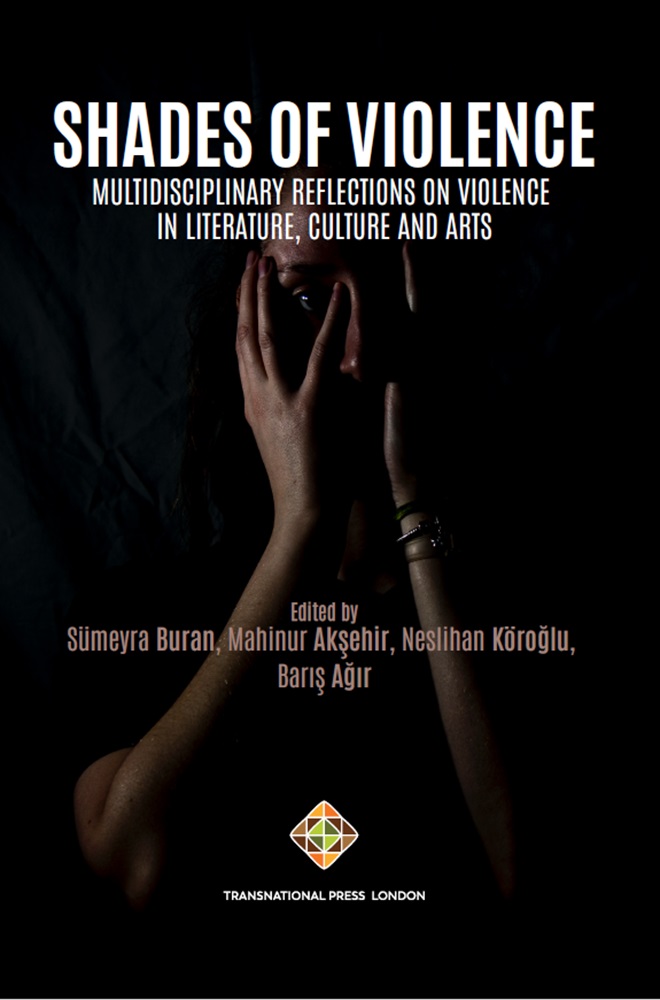
“Shades of Violence: Multidisciplinary Reflections on Violence in Literature, Culture, and Arts” explores the tapestry of violence across diverse forms of artistic expression, expertly edited by Sümeyra Buran, Mahinur Akşehir, Neslihan Köroğlu, and Barış Ağır. From the gripping introduction to the thought-provoking chapters contributed by an array of scholars, this collection navigates the multifaceted dimensions of violence. Muhsin Yanar’s exploration of Don DeLillo’s work calls for a posthumanist stance against violence, while Begüm Tuğlu Atamer questions the justification of violence in Shakespeare’s “Titus Andronicus.” The anthology expands its reach, examining slow violence in John Burnside’s “Glister” (Derya Biderci Dinç), portraying environmental violence in Bilge Karasu’s “Hurt Me Not” (Özlem Akyol), and unraveling psychological violence in Kate Chopin’s stories (Senem Üstün Kaya). Contributors delve into theatre violence (Gamze Şentürk Tatar), indigenous struggles against violence in Cheran, Mexico (Kristy L. Masten), Robert Browning’s “Porphyria’s Lover” (Derya Oruç) and the complex interplay of power in Anthony Burgess’s “A Clockwork Orange” (Şebnem Düzgün). The anthology also explores the contested space of the Black queer body (Taylor Ajowele Duckett), Nietzschean aggression (Yunus Tuncel), and various forms of violence in Giovanni Verga’s short stories (Simone Pettine). “Shades of Violence” emerges as an indispensable exploration of violence’s nuanced manifestations, providing readers with a comprehensive understanding through its diverse and insightful perspectives.
More...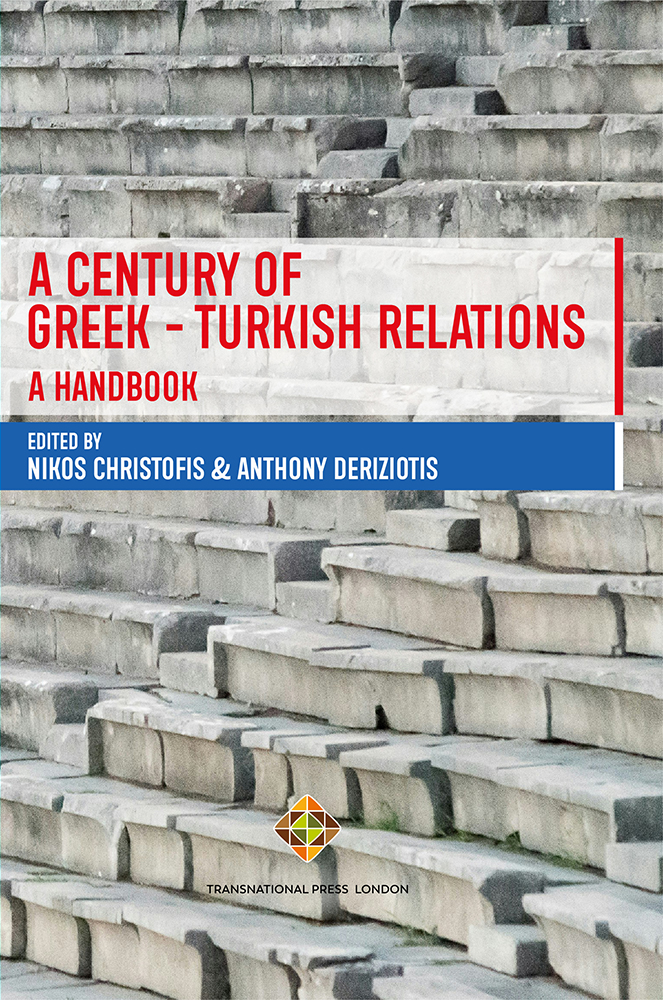
“A Century of Greek-Turkish Relations is an important handbook written by leading authorities from both shores of the Aegean Sea. Greek and Turkish scholars present in a balanced and objective way, as well as in a graspable and meaningful manner, the main periods in which key events brought the two sides into dispute or even conflict. These events, which are integrated in parallel and conflicting national narratives, fuel the historicity of the two national rivals. A century since the end of the Greek-Turkish war, the trauma of the Greek military defeat and the “disaster of the Asia Minor Greeks”, the establishment of the Republic of Turkey and the emblematic Treaty of Lausanne, render this kind of handbook undoubtedly essential. It opens the discussion to the wider audience in a rational and composed way and most importantly, the reader can follow through the pages, the dialogue between Turkish and Greek scholars. A book of this kind was missing from public history.” – Prof. Sia Anagnostopoulou, Panteion University“As an expert on the subject of “minorities” for the past fifty years with a number of publications in Turkish, English, and French, and based on the experts that are participating in the A Century of Greek-Turkish Relations: A Handbook, there is no doubt that this will become an indispensable tool, and above all, an objective account of the Greek-Turkish relations for both experts and the wider public.” – Prof. (emeritus) Baskin Oran, Ankara University“As editors of this important and timely book, Nikos Christofis and Anthony Deriziotis assert that uneducated narratives have perpetuated misunderstandings within Turkish-Greek relations. In their enlightening work, they dismantle these misconceptions, offering a nuanced exploration of the historical and contemporary complexities between the two nations. By featuring insights from leading experts, this book provides a crucial resource for anyone seeking a deeper understanding of Turkish-Greek relations, presenting new historical insights and analytical viewpoints on bilateral relations.” – Prof. Evren Balta, Özyeğin University“A comprehensive and insightful survey of Greek-Turkish relations. A number of distinguished academics have offered their expertise succeeding in the formidable task of touching upon several sensitive issues avoiding stereotypes and easy readings of problems that are burdened by history. A must read for students and experts alike.” – Prof. Sotiris Roussos, University of Peloponnese
More...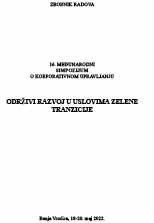
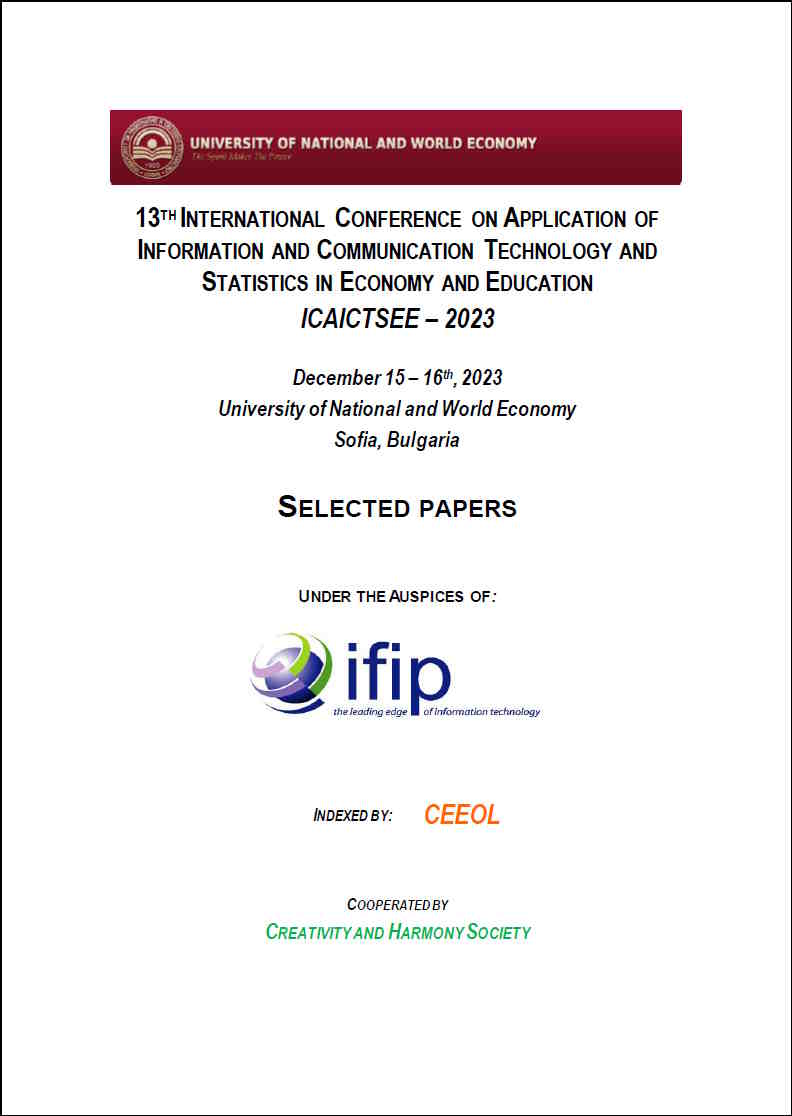
On December 15 and 16, 2023, the 13th International Conference on Application of Information and Communication Technology and Statistics in Economy and Education was held, organized by the Department of "Informatics" at the University of National and World Economy, Sofia, Bulgaria. During the conference, the results of the application of ICT in various fields of economy, education and related fields of scientific knowledge were presented, and some advanced and emerging research trends of long-term significance were discussed. The conference was held under the auspices of the International Federation for Information Processing (IFIP).
More...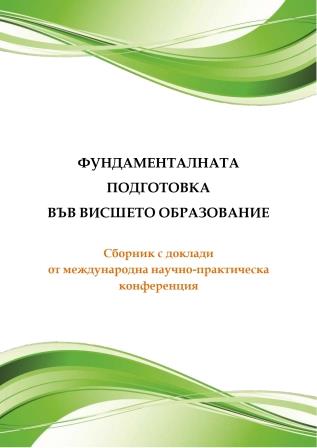
The book is published as a result of the international scientific conference, which took place at 8 November 2024. The scientific forum was organized by “Statistics and Applied Mathematics” Department of University of Economics – Varna.
More...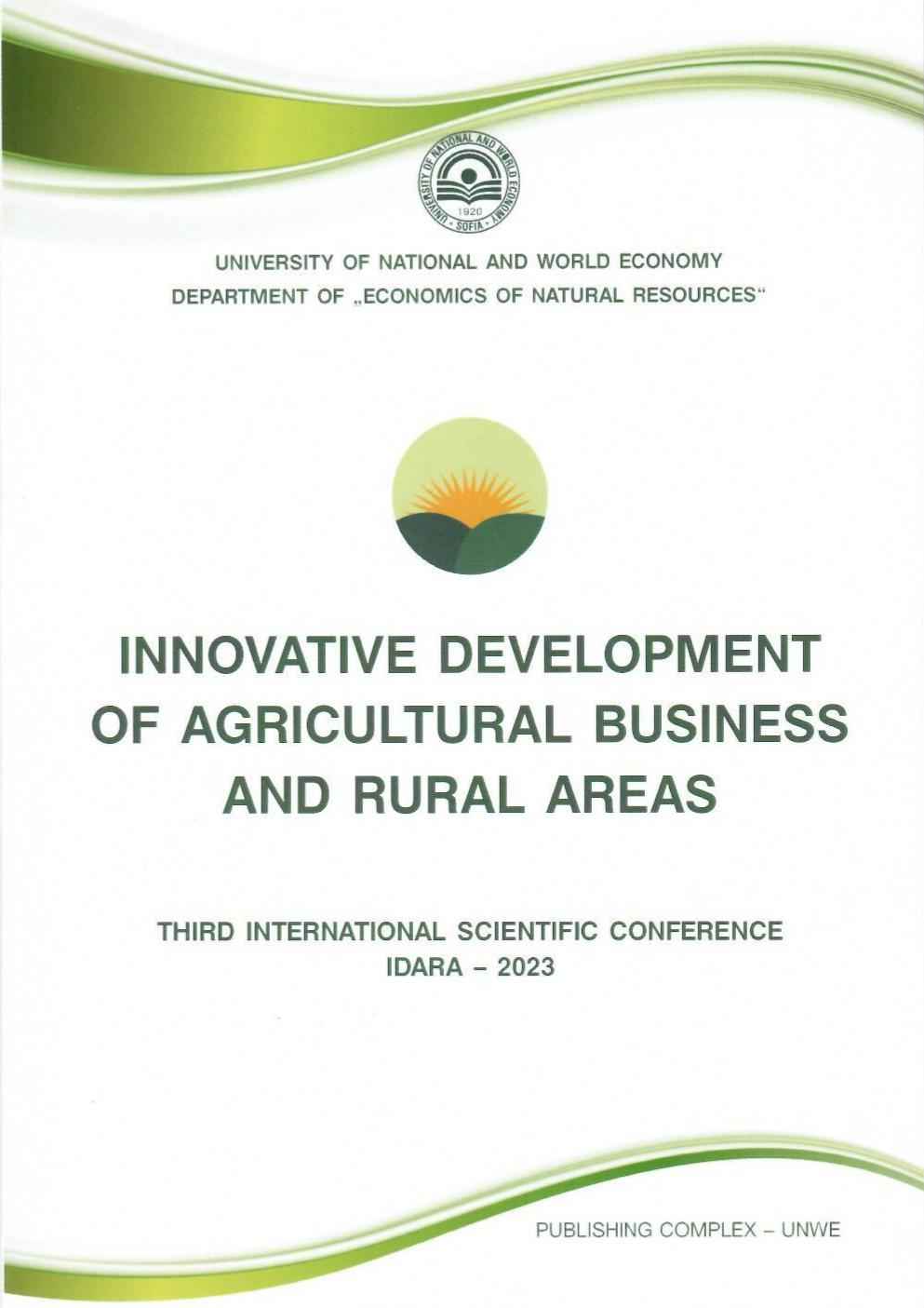
The conference proceedings include the papers presented at the third consecutive International Scientific Conference, "Innovative Development of Agrarian Business and Rural Areas", organized by the Department of "Economics of Natural Resources" of the University of National and World Economics on September 28 and 29, 2023. The development of agrarian business in the conditions of the Common Agricultural Policy, the processes of digitization and globalization, climate changes, the COVID-19 pandemic and others posed a number of challenges to agrarian business and rural areas. They led to the need to look for new solutions in the field of policies, business models, the transition to a green economy, bio-economy, circular economy and others. On this basis, a number of problems, discussion questions and strategic opportunities arose for researchers and experts in the agrarian economy and regional development. The topic of the scientific conference aroused wide interest in the scientific community. Requests for participation in the conference were received from 72 authors with 37 abstracts of reports. After checking for originality and 2 anonymous reviews, 30 papers with 64 authors were included and presented in the conference program. A significant part of the authors (34.4%) are researchers and teachers from seven countries in Europe and Asia.In the plenary session and at the meetings sections, were presented reports in several thematic directions: Innovative business models for the development of agrarian business and rural areas; European and national policies for innovative development of agriculture and rural areas; Digitization, diversification and sustainable growth in rural areas; Bioeconomy, green architecture and business; Innovative approaches to agricultural and rural management.
More...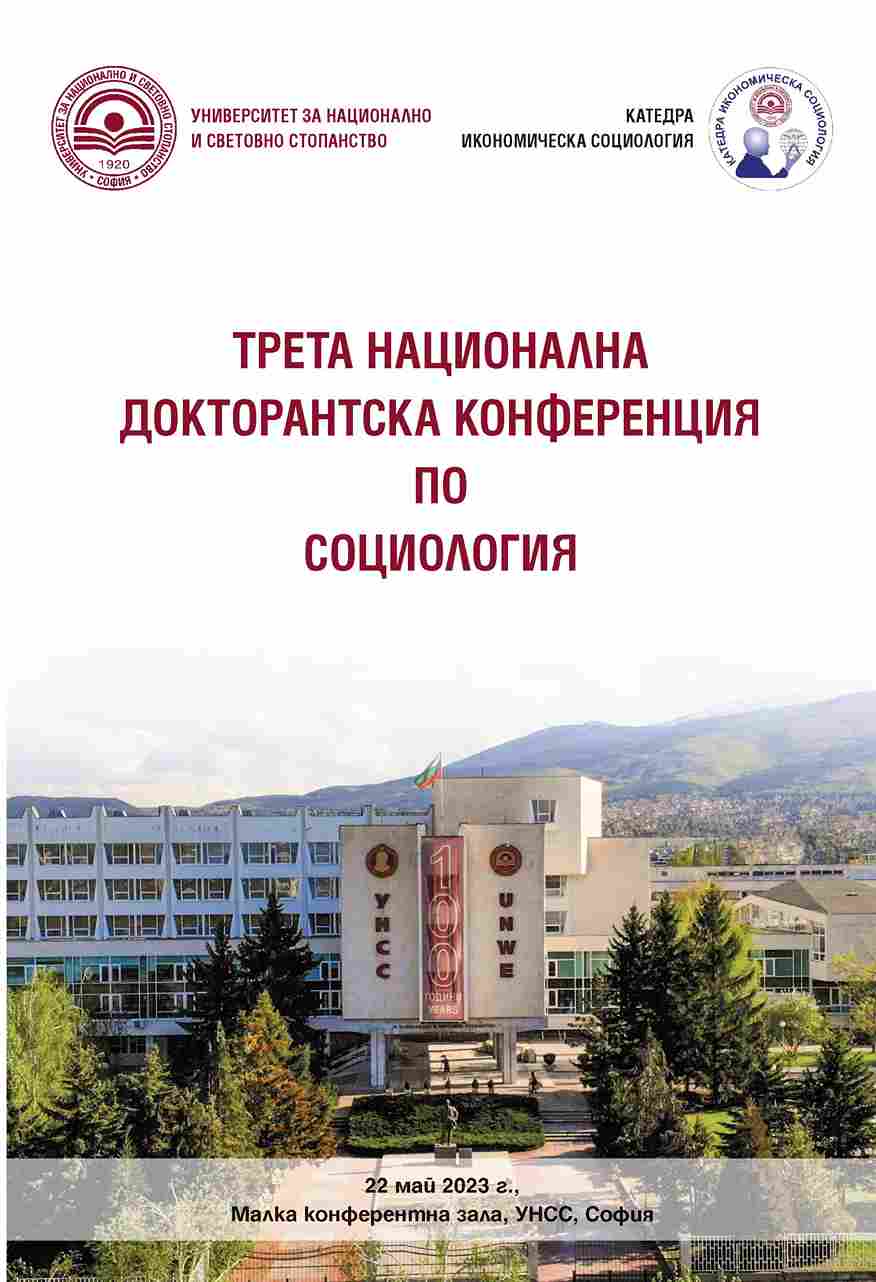
The collection of articles, presented during the Third National Doctoral Conference on Sociology at the University of National and World Economy in May 2023, addresses diverse and interdisciplinary topics reflecting the state of contemporary social research in Bulgaria. The volume brings together empirical and theoretical contributions of doctoral students, ranging from the impact of digitalization on political campaigns and labor dynamics in online platforms to explorations of professional autonomy and the symbolic boundaries of public spaces. With a strong focus on empirical methodologies, the collection provides fresh insights into themes such as organisational conflicts, healthcare reforms, transhumanism and civic engagement. Noteworthy are the innovative approaches and critical discussions led by doctoral researchers and established academics, fostering a productive exchange of ideas. This collection not only enriches the sociological discourse in Bulgaria but also has the potential to contribute to the global understanding of social transformations in post-transition contexts.
More...